
Blogging in Egypt: Virtual network, virtual oppression
I have been blogging in various platforms since 2006, focusing on human rights conditions and police abuses in Egypt. During this time, the Egyptian regime was widely described as one of the most “liberal-moderate” and sometimes “semi-democratic” regimes in the region, but meanwhile, hundreds of young people were hijacked, jailed, fined, and intimidated. Egypt has…
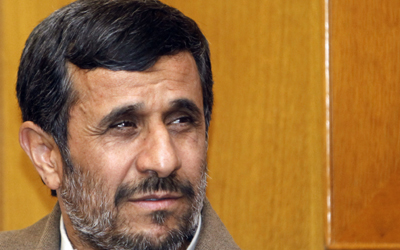
The 10 Tools of Online Oppressors
The world’s worst online oppressors are using an array of tactics, some reflecting astonishing levels of sophistication, others reminiscent of old-school techniques. From China’s high-level malware attacks to Syria’s brute-force imprisonments, this may be only the dawn of online oppression. A CPJ special report by Danny O’Brien
Audio Report: The 10 Tools of Online Oppressors
In our special report, “The 10 Tools of Online Oppressors,” CPJ examines the 10 prevailing strategies of online oppression worldwide and the countries that have taken the lead in their use. In this accompanying podcast, CPJ Deputy Director Robert Mahoney notes that these strategies range from sophisticated cyber-attacks to traditional brute-force techniques. Listen to the…
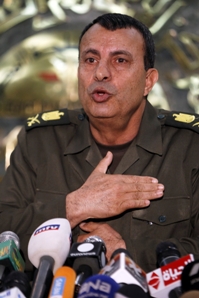
Substantial setback for press freedom in Egypt
New York, April 13, 2011–A new requirement by the Egyptian military that local print media obtain approval for all mentions of the armed forces before publication is the single worst setback for press freedom in Egypt since the fall of President Hosni Mubarak in February, the Committee to Protect Journalists said today.
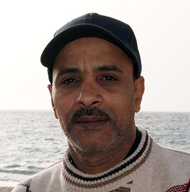
More journalists held in Libya; blogger jailed in Egypt
New York, April 11, 2011–Continuing a weeks-long pattern of seizing journalists covering the Libyan conflict, the government of Muammar Qaddafi is detaining two more television journalists, the Committee to Protect Journalists said today. And in Egypt, in a serious setback for press freedom under the transitional government, a court has sentenced a blogger to a…

Journalist missing in Libya; 1 killed in Iraq
New York, April 8, 2011–The Committee to Protect Journalists is concerned about the fate of American freelance journalist Matthew VanDyke, who has been missing in Libya since mid-March, according to his family and news reports. He is among 15 reporters either missing or in government custody in Libya.
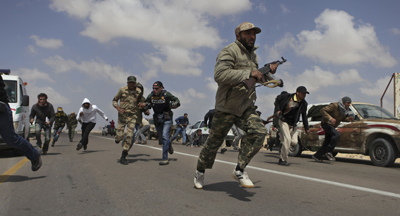
Journalists to be expelled from Libya; Bahrain deports 2
New York, April 6, 2011–More than 20 foreign journalists were told that they would have to leave Libya within 24 hours, National Public Radio said today. NPR reported that Libyan authorities asked journalists from different international news outlets to leave the country. The media outlets include Britain’s Channel 4, CNN, Fox News, The Independent, Italian…
Journalists detained in Libya, Syria, Yemen; 1 dead in Iraq
New York, April 1, 2011–Al-Jazeera said today that Libyan authorities re-arrested four of its journalists just hours after they had been released. A Syrian journalist who spoke critically of Libyan government policies was also reported in state custody. The Committee to Protect Journalists condemns the ongoing attacks on the press in Libya, and calls on…
Journalists detained in Bahrain, Egypt
New York, March 30, 2011–A CNN crew was detained today in Manama while interviewing a prominent Bahraini human rights defender, according to a Twitter posting by the network and a CPJ interview. The detentions come amid a recent series of repressive actions by the Bahraini government, which included today’s arrest of a well-known blogger. Anti-press…
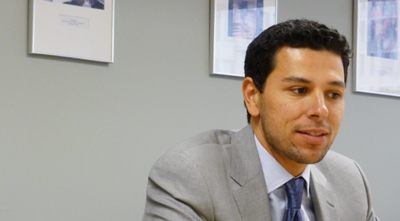
Q&A: Ayman Mohyeldin, Al-Jazeera English correspondent
For the millions of non-Arabic speakers around the world who followed Egypt’s revolution live one journalist stood out–Ayman Mohyeldin of Al-Jazeera English. Mohyeldin, 32, used his knowledge of the region and of the West to make sense of the events unfolding in Cairo’s Tahrir Square for an international audience. He also witnessed the unprecedented wave…